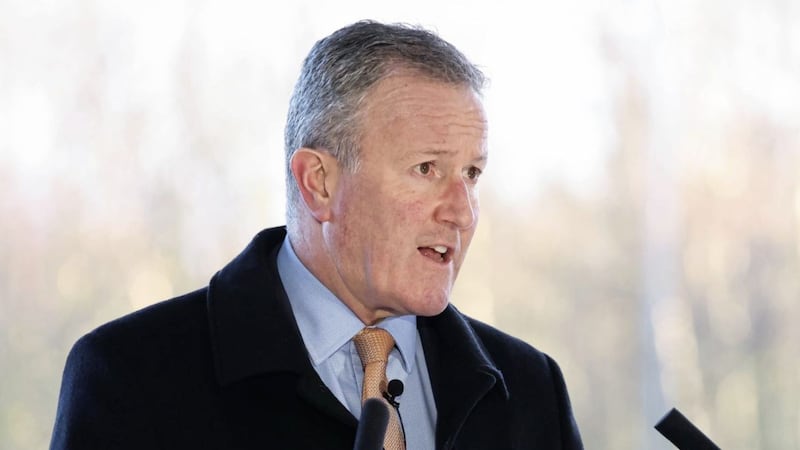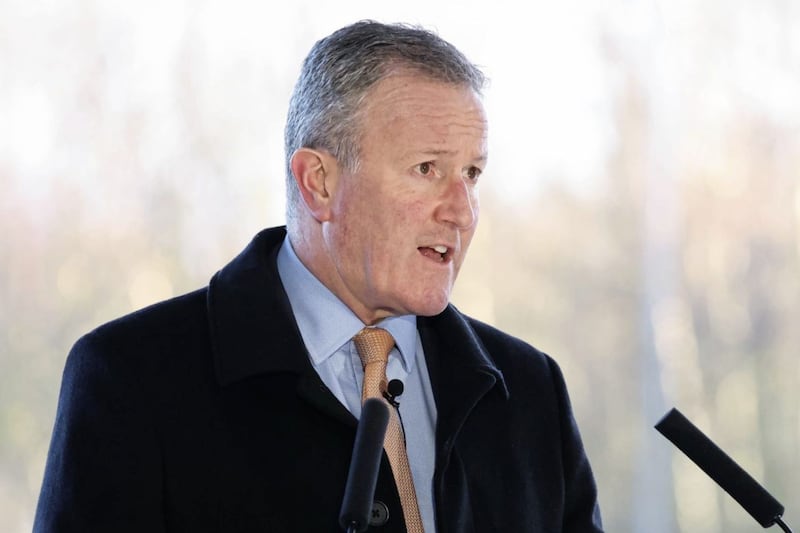STORMONT will continue to pressure the British government to foot the bill for Troubles pensions even though ministers have already pledged to fund the long-awaited scheme.
The Court of Appeal yesterday accepted an undertaking from the executive that it will make the payments, estimated to cost up to £1.2bn over their lifetime. The first year's bill will come in at around £30m.
But while ministers have now formally assured judges that the scheme will be funded come what may, they have made clear that they will continue to push the British government to provide some of the money.
In a joint statement, First Minister Arlene Foster, Deputy First Minister Michelle O'Neill, Justice Minister Naomi Long and Finance Minister Conor Murphy said: "The court has today accepted our undertaking that payments will be made to successful applicants under the Troubles Permanent Disablement Payment Scheme.
"We remain committed to delivering the scheme and are mindful of the needs of victims and survivors who will be recipients of the payment.
"This undertaking provides reassurance and confidence that payments will be made when they fall due under the terms of the scheme, regardless of where the funding comes from.
"We will continue to progress financial discussions with the Westminster government in the context of their funding responsibilities for the scheme."
The British government has suggested that £100m of Treasury funding earmarked for issues related to Northern Ireland's "unique circumstances" in the deal to restore Stormont could be used to part-fund the scheme.
Mr Murphy has rejected this proposal, insisting it does not amount to an additional funding commitment.
The pension scheme, which should have been open for applications at the end of May last year, has been mired in controversy and delay.
It was initially held up last year when Sinn Féin refused to designate a Stormont department to administer it, after objecting to the eligibility criteria of the Westminster legislation that excluded former paramilitaries convicted of causing serious harm.
Ms O'Neill eventually agreed to nominate a department last August following a highly critical court judgment.
The Commission for Victims and Survivors welcomed the financial underpinning of the scheme.
"This has been a source of pain and frustration for too long and it is unfortunate that court proceedings were seemingly the only way to finally deliver on some element of recognition," it said.
"Sadly it has come too late for some and our thoughts are with the families for whom this news will likely be bittersweet."
First Minister Arlene Foster said the court ruling meant “the final hurdle has been crossed” for victims.
"It has been a deeply frustrating journey towards this point, but I welcome that we have finally achieved agreement to confirm that the pension will be paid when it falls due to recipients."
She said there had been a "clear commitment" from the Department of Finance to ensure the funds were in place when required.
"This commitment took too long, the delay caused distress and uncertainty, I welcome that today certainty has been given," the DUP leader said.
SDLP legacy spokesperson Dolores Kelly said: "The failure of political leaders to design and implement a scheme more than two decades after the Good Friday Agreement has left survivors understandably exhausted and vigilant against false hope.
“The joint first ministers should set out how they will meet the needs of victims and survivors, the bereaved and all those who have suffered lost."
UUP MLA and Executive Office Committee vice-chair Doug Beattie said victims had "carried themselves with dignity" despite the long delays.
"Wrangling with the UK government over long-term funding for the scheme may continue, but injured victims should not be punished any longer," he said.
“The executive must move immediately to provide certainty around application and payment dates, as well as how those who have waited longest might be prioritised within the scheme.”








